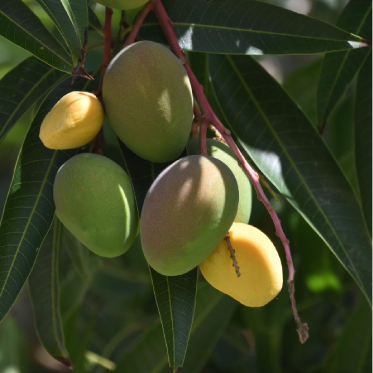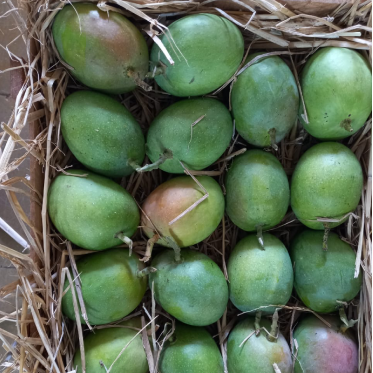Organic farming of mangoes, including the renowned Ratnagiri and Devgad Alphonso mangoes, faces several challenges due to the unique environmental, agricultural, and socio-economic conditions in these regions. Here’s a breakdown:
- Climatic and Geographical Challenges
- High Humidity and Rainfall:
- Ratnagiri and Devgad receive heavy rainfall during the monsoon, creating a humid environment conducive to fungal diseases like anthracnose and powdery mildew. Managing these diseases organically is challenging as synthetic fungicides are not allowed.
- Saline Soil and Water:
- Coastal regions often have saline soil and water, which can affect tree health. Organic methods for addressing salinity (e.g., using gypsum or green manures) require longer timeframes to show results.
- Pest and Disease Pressure
- High Pest Incidence:
- Mango orchards in this region are prone to pests like fruit flies, mealybugs, and mango hoppers. Controlling these pests organically (e.g., with neem-based sprays, pheromone traps, or biological controls) is less effective and labor-intensive compared to chemical pesticides.
- Difficulty in Managing Fruit Flies for Export:
- Countries like the USA and Japan have strict phytosanitary requirements (e.g., pest-free certification). Organic pest control methods may not meet these stringent export standards without extensive post-harvest treatments.
- Soil Fertility and Nutrient Management
- Nutrient Demands of Mango Trees:
- Alphonso mango trees are nutrient-intensive, requiring balanced fertilization to produce high-quality fruits. Organic fertilizers (e.g., compost, vermicompost, or cow dung) release nutrients slowly, making it harder to meet immediate nutrient needs.
- Micronutrient Deficiencies:
- Soil in Ratnagiri and Devgad is often deficient in micronutrients like zinc and boron. Addressing these deficiencies with organic methods is less precise and effective compared to chemical supplements.
- Lack of Organic Inputs
- Availability of Certified Inputs:
- Organic farming relies on certified organic fertilizers, bio-pesticides, and compost. These inputs are not always readily available or affordable in remote areas like Ratnagiri and Devgad.
- Labor-Intensive Practices:
- Organic farming requires manual weeding, mulching, and preparation of organic inputs, increasing labor costs.
- Socio-Economic Factors
- Market Dynamics:
- Although organic mangoes can fetch higher prices, the demand for organic Alphonso mangoes is still niche. Farmers may hesitate to invest in organic farming without guaranteed returns.
- Certification Costs:
- Obtaining and maintaining organic certification (e.g., NPOP, USDA Organic) is expensive and involves rigorous inspections, which can deter small-scale farmers.
- Post-Harvest Challenges
- Short Shelf Life:
- Organic mangoes often have a shorter shelf life due to the absence of chemical preservatives or treatments, making them less viable for long-distance markets.
- Compliance with Export Standards:
- Meeting international export standards like irradiation and pest control is harder for organically grown fruits.
- Transition Period
- Time to Convert:
- Converting a conventional mango orchard to organic takes 2–3 years. During this period, yields often decline, and the fruit cannot yet be sold as organic, increasing financial strain on farmers.
- Risk of Contamination
- Proximity to Conventional Farms:
- The Ratnagiri and Devgad regions have many conventional mango farms. Drift of synthetic pesticides or fertilizers from neighboring farms can compromise organic certification.
- Groundwater Contamination:
- Pesticides or fertilizers from conventional farms can seep into groundwater, affecting organic farms.
Conclusion
The Ratnagiri and Devgad Alphonso mango regions face unique environmental and socio-economic challenges that make organic farming difficult. While organic methods are sustainable, they require significant investment in time, resources, and expertise. Supporting farmers through subsidies, better market access, and research on organic pest and nutrient management could make organic farming more viable in these regions.










